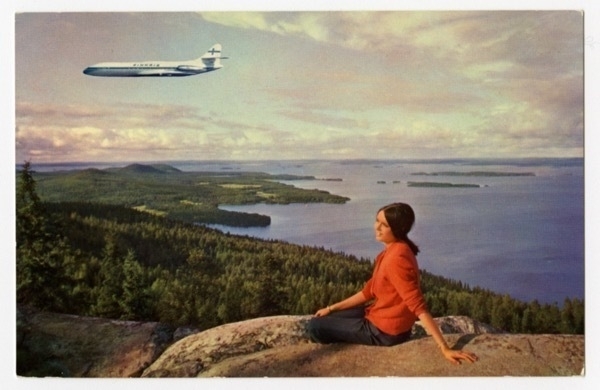rutabagas
Rutabagas: Vol. 2: Japan transform , museums saving the web, c apitalism makes software bad again, and more
- Aaron Straup Cope’s talk notes for Wishful Thinking

VIBES.
I read this post a few days ago and have since wandered through the hyperlinks to his other stuff. It’s clear that for some time Cope has been baking thoughts about the cultural heritage sector and its responsibility - “relationship” - to engage with emerging “virtualization” technologies and the techno-capitalist system.
(As I’m learning: he’s been committed to the web writ large, you can see it through numerous cyber- and hyper- textual projects playing freely in the “network of patient documents”; his own delightful euphemism. In these projects he goes deep for the web’s inherent nature of democratic, atemporal revisiting and recall." “That access to recall is what makes the Network special to me.” At first blush, these are not impossible conservationisms. As he says: “The point is not that our relationship with technology should end with the web.”
Reminds me of Avdi Grimm’s discussion of conservation:
“Healthy growth starts where it is, and both builds on and repurposes what came before. No clean slates, but also no bans on knocking down walls.”
Cope has chosen not to wave the white flag, and fends off the grievings, misgivings, and saudade of laments starting a decade ago.
We managed to build a lot of cool shit on the back of 56Kb modems. We built a lot of cool shit – including entire communities – on top of a technical infrastructure that is a pale shadow of what we have available to us today. We know how to do this.
)
Cope is saying: The (open) web is good, actually. Which is what Cory Doctorow picked up and so it found it’s way into my inbox.
In Cope’s newer account at hand from the 2023 Museum Computer Network conference, we get these thoughts reapplied to emerging virtualization technologies, VR, AR, particularly the “so called ‘metaverse’” (the name scare-quoted out of exasperation, maybe?). He wants to remind us that we’re not done with the web yet.
At the outset, Cope moves quickly to invoke a reminder about the museum’s networked power - it’s webiness; at the same time its implication in the network of patient documents:
…the practice of revisiting is the bedrock of the humanities. Revisiting is what distinguishes entertainment from culture.
The decade+-long struggle continues. We must understand how our bargains with techno-capital hegemony (apps, ad-driven social networks) deepens the threat against ideas (I’d add emotions, evolutions, revolutions) flourishing outside the corporate fence. What Cope describes as “time to warm up to ideas.”
I’m game. And Oh! The cultural heritage sector seems a perfect backdrop to wrestle with the threats of new tech. The material threats are lived: even pragmatically, the museum can not, may not, should not be able to afford the costs of bug-eye headsets and visors. The larger scheme is almost dialectic, smooth: the plunder and seizure of open-access-egress recall power while the cats keep entertaining my eyeballs. While Facebook’s controlled metering of power to content creators (colonial policemen) transforms cultural value from something that moves freely across past and future, geography; that’s cheap, abundant; that’s allowed to take root…organically (for lack of a better term): transforms into something judged too quickly, cast away, spent, ephemeral. (Remember, DIGITAL != EPHEMERAL). Prepping us for some greedy end, like recording everything we see because Cambridge Analytica and genocide, and… He says:
Namely that if you publish something online – whether it’s a selfie, a “hot take”, an essay or a multi-year project; anything really – and it is not immediately successful or viral then it was a waste of time and effort. It was not worth doing.
Which is insane. It is insane because that’s not how ideas take root.
It takes people time to warm up to ideas, especially new or challenging ideas, if only because we are busy just juggling the ideas and beliefs we already hold with the complexities of our lives in relation to one another.
It is also hard not to understand this idea as a deliberate of attempt to gaslight the web and everything that makes the web important.
Later..
We would do well to understand the web not just as a notch in the linear progression of technological advancement but, in historical terms, as an unexpected gift with the ability to change the order of things; a gift that merits being protected, preserved and promoted both internally and externally.
On time-traveling temporality, from back in www.aaronland.info/weblog/20…
The web gave us the ability to return to a thing outside the shared (or master) narrative at a time of one’s own choosing. Of shifting time in the service of one’s own interest or in the service of simply coming to an understanding of one’s own interests.
-
Japan’s haiku poets lost for words as climate crisis disrupts seasons
-
Ship/Show/Ask: More often than not web dev shops I’ve worked in are weighted toward the “Ask” strategy because of blanket policies. So even in cases where a team had reached a degree of trust that would allow for releasing with “Ship” or “Show” there were mechanical bulwarks in place. For example, physical restrictions to self-merge a Github Pull Request.
-
It’s amazing what a small amount of imagination + green can do to the built world. In Japan, the Federation of Landscape Contractors holds a contest each year for best-looking garden on the back of a pickup truck. Some winners.
-
Having worked tangentially to direct patient care in the health tech biz building industrial pharmacy software, these insights about how bad healthcare software can be resonate. Paper: You want my password or a dead patient?. Good summary with pull quotes from Fred Herbert from a short draft paper.
Tuesday November 28, 2023